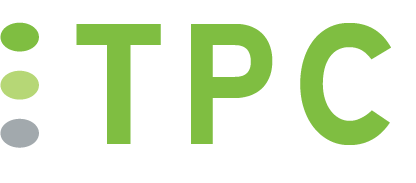Treating a lower back herniated disc without medications or surgery
posted: Jun. 07, 2022.
A herniated disc is sometimes called a bulging, protruding, or ruptured disc. It is one of the most common causes of lower back pain and associated leg pain. The condition occurs when the soft center of a spinal disc pushes through a crack in the tough exterior casing.
Some herniated discs cause no symptoms, and not every herniated disc needs intervention.
Causes of a herniated disc:
- A herniated disc can occur spontaneously from an injury due to an accident or improper lifting
- Repetitive movement and certain occupational or recreational activities can increase your susceptibility to a herniated disc
- Aging also plays a role as discs become more dry, hard, and brittle as we age
- Genetics
- Smoking
- Obesity
Early symptoms of a low back herniated disc vary depending on location and personal pain response.
Symptoms can include:
- Sharp or burning pain in the lower back
- Numbness or tingling often radiating into the hip, leg, and foot
- Pain that radiates from your low back area, down one or both legs, and sometimes to your feet
- Pain like an electric shock activated by standing, walking, or sitting
- Increased pain from exercise
- Muscle spasms in your back or leg
- Muscle weakness, or knee or ankle reflex loss
- Foot drop symptom
- Weakness or difficulty controlling bladder or bowel function
Risk of traditional treatments
Herniated discs get better on their own over time or with nonsurgical treatment for nine out of 10 people. In most cases, the pain from a herniated disc will improve within a couple of days and completely resolve in four to six weeks. Traditional treatment for a herniated disc starts with avoiding movement and hot/cold therapies. It can escalate to bed rest, prescription medication pain management, injections, and even surgery.
The undesirable side effect of prescription pain medication cannot be overstated. Medications used to manage back pain include opioid drugs like OxyContin, Percocet, Demerol, Vicodin, Codeine, Morphine, Celebrex, and Valium. Their side effects can include dry mouth, dizziness, drowsiness, constipation, fatigue, nausea, vomiting, trouble breathing, depression, hallucinations, addiction, and suicide.
Beyond managing the pain with oral drugs, epidural injections of corticosteroids are the next step in a traditional approach to treating herniated discs. About 50 percent of patients notice relief after an epidural injection, but the results tend to be temporary. These injections can lead to spinal fluid leakage, possible laminectomy, and surgery.
While surgery can be successful for some people, the results can lessen over time compared to nonsurgical treatment. Estimates vary, but between 1 percent and 20 percent of people who have a microdiscectomy will have another disc herniation at some point. According to one study, the success rate for a herniated lumbar disc surgery was 78.9 percent among 39,048 patients. But surgery comes with risks, including:
- Infection
- Damage to nerves or blood vessels
- Problems with the new disc
- Leaks of spinal cord fluid
- Bleeding
- Reoccurrence of hernia
Long term relief without medication or surgery
Chiropractic is a preferred treatment method for many patients with bulging and herniated discs because it is non-invasive and does not involve drugs or injections. Chiropractic care can significantly speed recovery and reduce the chance of reoccurrence.
Once you have your diagnosis, you and your chiropractor can work together to find the best way to treat your condition.
If you want to explore conservative options for recovery, chiropractic care is an excellent place to start. A chiropractor can help you heal naturally and relieve your pain.
One of the most popular features of chiropractic care is the whole-body approach to wellness. A chiropractor will look at your entire spine in the framework of your lifestyle and prior injuries. Often treatments include recommendations for self-care, including exercise, nutrition, and other non-invasive treatments.
Chiropractic treatment for bulging or herniated discs is safe, effective, and long-lasting. If you or someone you know is suffering from back pain due to a herniated disc, we recommend quality chiropractic care so you can reach your True Potential. Call today! (503) 574-4872
Tags: herniated disc,  bulging disc
